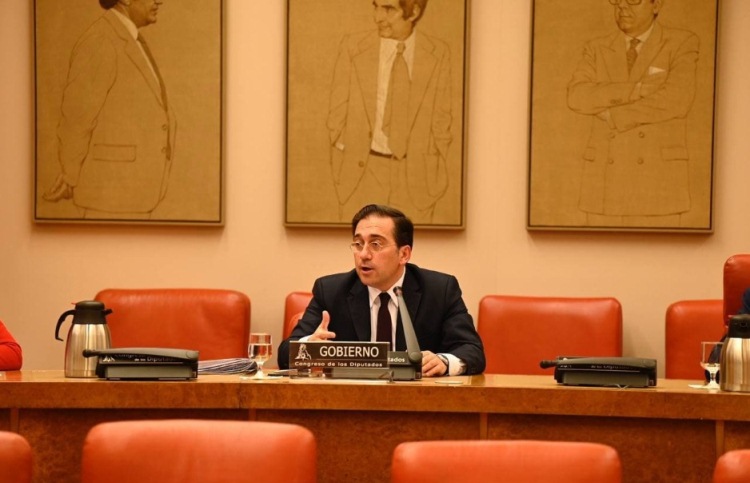The Diplomat
The Minister of Foreign Affairs, José Manuel Albares, assured yesterday before Congress that the Council of Ministers will authorize the preliminary draft of the International Cooperation Law before the end of this year, so that it can be approved in Parliament during the first half of 2022.
During his appearance before the International Cooperation Commission of the Congress of Deputies, Albares assured that the future Law of Cooperation for Sustainable Development and Global Solidarity, which will replace the current one of 1998, intends to carry out an “in-depth reform” of Spanish Cooperation.
According to Albares, the Government’s objective is for the draft bill to reach the Cortes Generales at the beginning of April so that it can be approved during the next session, which ends in June. To this end, the minister expressed his wish to count on the support of all the groups and asked the PP, as an opposition party, to have the same attitude as the PSOE had during the approval of the 1998 Law, when the Popular Party was in power. “Let’s make a State policy”, he added.
As for its contents, he explained, the new regulation foresees to reinforce “the central role of the Ministry” and, at the same time, to set up a Higher Council of Cooperation for Development that guarantees “a better representation and a wider participation of the different actors of the system”. It also establishes the creation of an Interministerial Coordination Commission and promotes the decentralized cooperation of autonomous communities and local entities through the new Sectorial Conference of Cooperation for Development.
The draft bill also proposes the approval of “a new statute” for the employees of the Spanish Agency for International Development Cooperation (AECID), in order to “strengthen its capacities”, and provides for the creation of an Evaluation Office of the Spanish Cooperation in charge of evaluating “the impact and results” of the Cooperation.
On the other hand, Albares informed that another objective of the future Law is that at least 85% of Spanish Cooperation actions should contribute to reduce poverty and inequality, that at least 30% should help to tackle climate change and other environmental objectives, and that at least 85% should help to promote gender equality. Another of the main objectives of the regulation, he said, will be “the promotion of the quality of democracy and respect for human rights” through “strengthening the capacities of public administrations to improve social cohesion”. As for the priority geographical areas, the future Law will introduce, as an “important novelty”, the Sahel region because of “its institutional fragility and the direct impact that its evolution has on our security”.
The PP extends its hand and asks for “generosity”
During their interventions, the opposition groups welcomed Albares’ announcement and offered their cooperation to move the text forward. In this sense, the PP spokeswoman, Paloma Gázquez, offered the “outstretched hand” of her party so that the law is “approved by a very large majority” and asked the Government to show the same “generosity” that the Government of José María Aznar had with the PSOE during the negotiations of the 1998 law. “We accept the invitation to work together and we pray that the PSOE recovers its sense of State”, he added.







